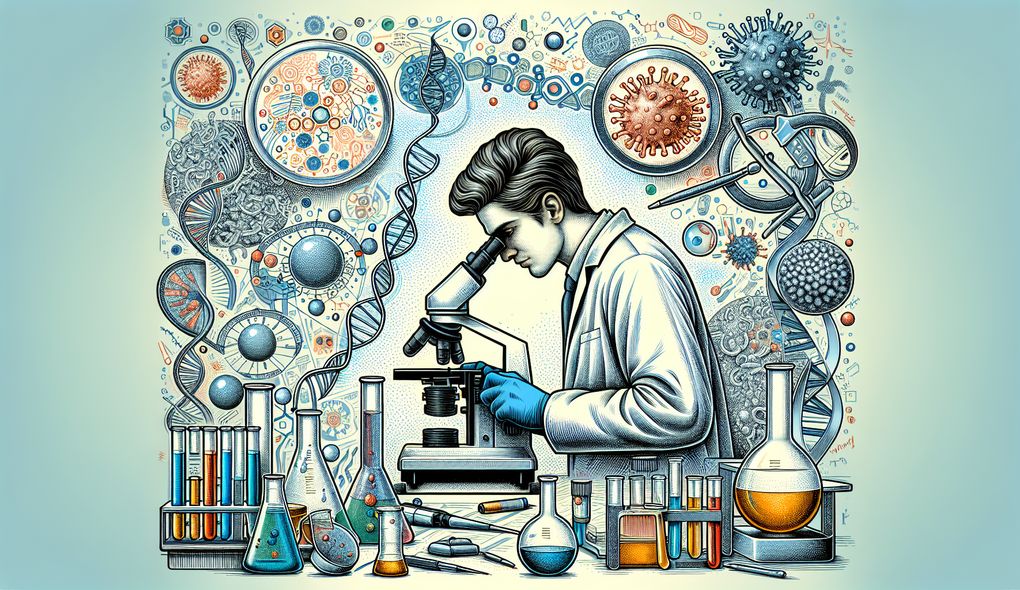What strategies do you use to maintain accurate records of research findings and experimental results?
INTERMEDIATE LEVEL

Sample answer to the question:
To maintain accurate records of research findings and experimental results, I use a combination of digital tools and meticulous organization. I create electronic folders for each project, where I store all relevant documents, such as protocols, data sheets, and research articles. I also keep a detailed laboratory notebook, where I record step-by-step procedures, observations, and any deviations from the planned experiments. In addition, I regularly backup my data to ensure its security. By following these strategies, I ensure that I have a comprehensive record of my research findings and experimental results.
Here is a more solid answer:
To maintain accurate records of research findings and experimental results, I utilize a combination of digital tools and meticulous organization. Firstly, I create electronic folders for each project using cloud storage platforms, such as Google Drive or Dropbox. Within these folders, I store all relevant documents, including protocols, data sheets, and research articles. I also maintain a detailed laboratory notebook, where I record step-by-step procedures, observations, and any deviations from the planned experiments. To ensure data integrity, I consistently backup my data using external hard drives or cloud services. Additionally, I implement version control by appending timestamps or version numbers to files, preventing any confusion or loss of information. Furthermore, I adhere to Good Laboratory Practice (GLP) guidelines, which emphasize thorough documentation practices. By following these strategies, I guarantee that I have a comprehensive and accurate record of my research findings and experimental results.
Why is this a more solid answer?
The solid answer expands upon the basic answer by providing more specific details about the digital tools used (Google Drive or Dropbox), backup methods (external hard drives or cloud services), and version control practices. It also mentions adherence to Good Laboratory Practice (GLP) guidelines. However, the answer could further improve by including specific examples or experiences related to implementing these strategies.
An example of a exceptional answer:
To maintain accurate records of research findings and experimental results, I have developed a systematic approach that combines digital solutions with meticulous organization. Firstly, I establish a standardized naming convention for electronic folders, ensuring consistency and easy retrieval of information. Within these folders, I create subfolders for different aspects of the research project, such as experimental protocols, raw data, analysis scripts, and literature references. By organizing files in this manner, I can quickly navigate through the project's components and locate specific information when needed. Additionally, I utilize electronic laboratory notebooks that provide features like template-based experiment entry, auto-population of metadata, and data linking to ensure structured and uniform recording of research activities. To enhance data security, I employ cloud-based storage platforms with strong encryption and regular backups. This allows for seamless access and collaboration with team members while ensuring data integrity. Moreover, I implement version control using Git, a distributed version control system, which tracks changes made to files and facilitates collaboration while preserving a comprehensive revision history. Lastly, I strictly adhere to Good Laboratory Practice (GLP) guidelines and maintain clear and detailed documentation of experiments, observations, and results. These robust strategies have enabled me to maintain accurate records of research findings and experimental results throughout my career.
Why is this an exceptional answer?
The exceptional answer provides a highly detailed and comprehensive response to the question. It introduces additional strategies, such as a standardized naming convention, subfolder organization, electronic laboratory notebooks with specific features, and the use of Git for version control. It also emphasizes the importance of data security and collaboration. The answer demonstrates a deep understanding of the importance of accurate record-keeping and showcases the candidate's expertise in implementing various strategies. Overall, it stands out as an exceptional answer due to its thoroughness and specificity.
How to prepare for this question:
- Familiarize yourself with different digital tools and software commonly used in research settings, such as cloud storage platforms, electronic laboratory notebooks, and version control systems.
- Develop a naming convention and folder structure that suits your organizational preferences and makes it easy to locate specific information.
- Practice meticulous note-taking during experiments, recording step-by-step procedures, observations, and any deviations from the planned experiments.
- Learn about Good Laboratory Practice (GLP) guidelines and understand how they can be applied to maintain accurate records.
- Consider examples from your past experience where you successfully maintained accurate records of research findings and experimental results, and be prepared to discuss them during the interview.
What are interviewers evaluating with this question?
- Organizational skills
- Attention to detail

